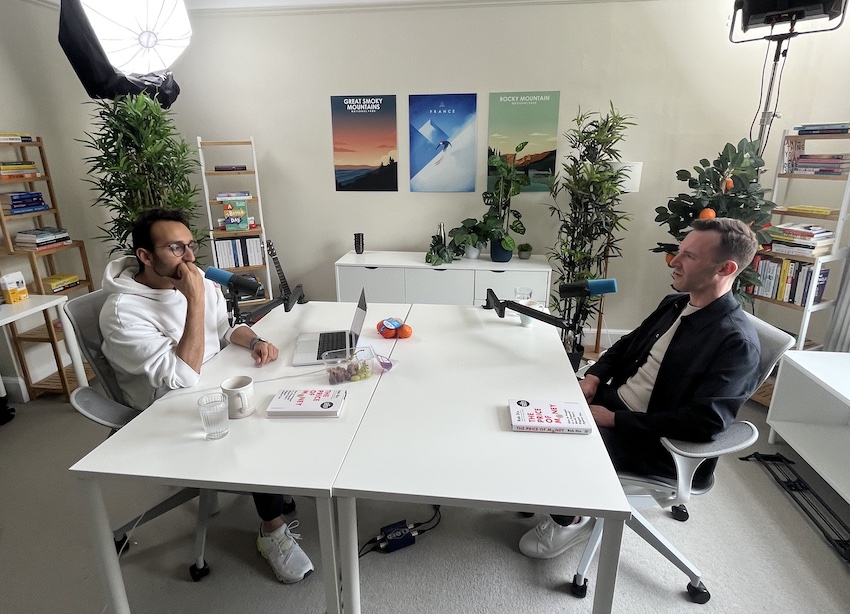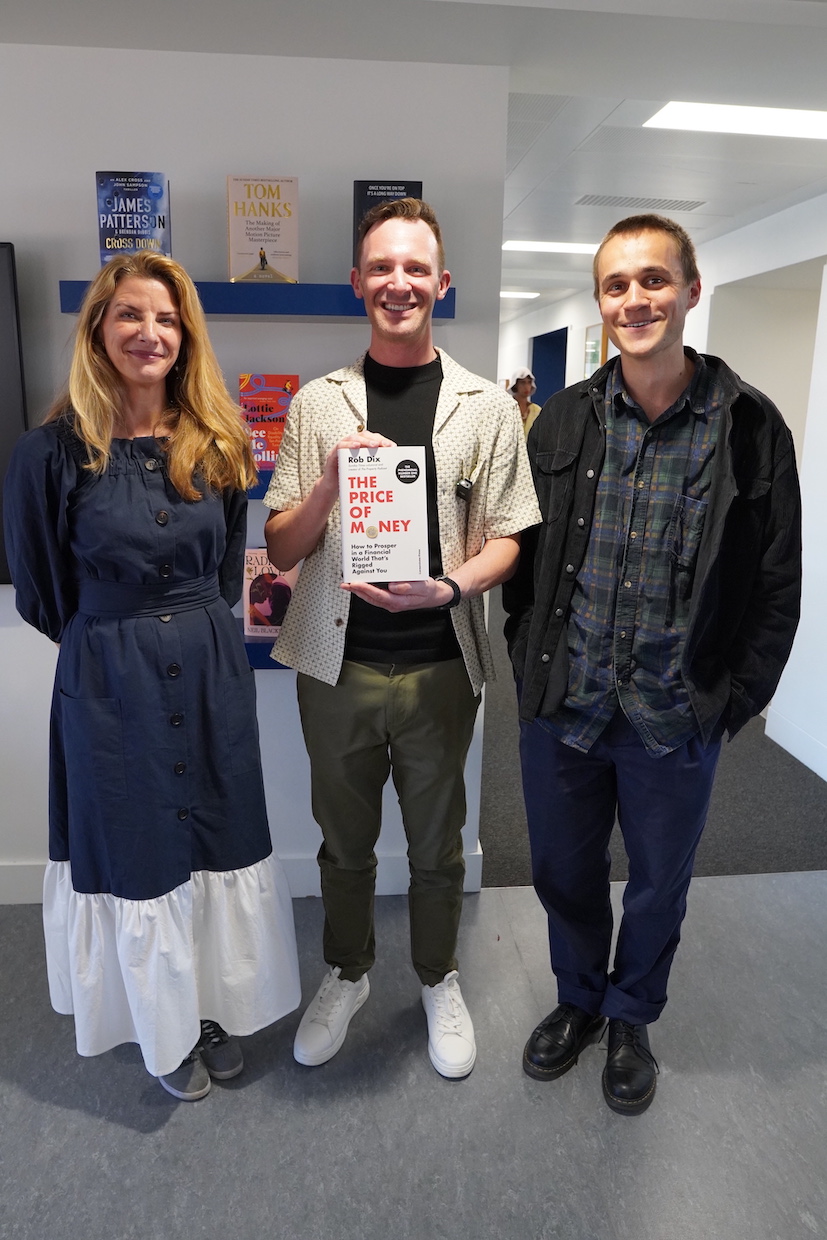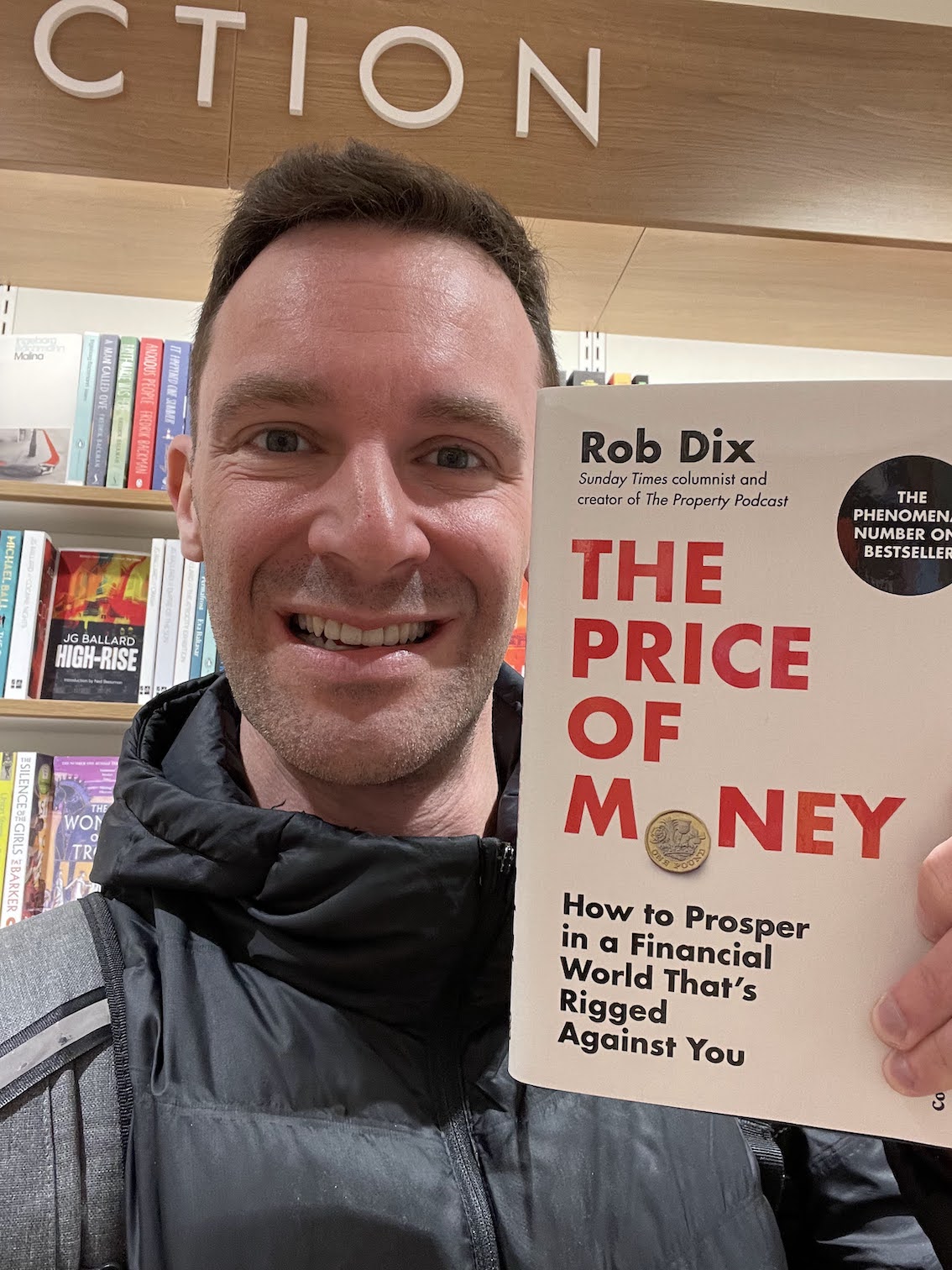Fixing the system and beating the banks
Jun 10, 2023 5:06 am
Welcome!
This month, I'm:
- Single-handedly fixing the tax system
- Explaining Money Market Funds
- Sharing how not to get rich
- Recommending AI tools that are making me more productive
You're receiving this monthly email because you signed up for it at robdix.com, or you opted in after reading my book The Price Of Money. If you don't enjoy it, there's an unsubscribe link at the bottom.
💀 The problem with inheritance tax
Of all the great intractable debates of our time (toilet roll over or under, jam or cream on your scone first...), the "right amount" of inheritance tax will surely be the last to be resolved.
One side takes the position of: "It's my money, I've already paid tax on it at least once, why do they get to tax it again?"
The opposing argument is: "The tax system needs to level the playing field, otherwise inequality will compound over generations. Some people will inherit nothing; others will inherit millions. By taking a slice, the tax can be used to help those who are less lucky."
It's hard not to be sympathetic to both of those views.
However...
It struck me the other day that what we have in the UK isn't actually an inheritance tax at all – it's an estate tax. This means that the "estate" of the person who died is taxed, then whatever is left over can be passed on. (It's the same in the US.)
You can see why this makes HMRC headquarters the most haunted building in the country (I imagine).
But what if you allowed all someone's money to be passed on tax-free – then the recipient pays tax on it like they would any kind of other income?
That goes some way to overcoming the "it's my money" objection... because by that point, it isn't. It then doesn't seem unreasonable to say that the recipient should be taxed on it just as they would be if they earned it. Indeed - if they weren't, you could see it as unfair on those who work for their money.
There are probably all manner of issues with that way of doing things, and I don't pretend to have fully thought it through.
Regardless, within the current system, the best way of swerving the whole issue strikes me as being the Die With Zero approach: give a defined gift at a defined time (such as enough for a home deposit when they turn 30) rather than leaving it to chance.
That way the gift potentially has more impact (the average age to receive an inheritance in the UK is 61!), and it's hopefully well out of your estate by the time you croak.
(By the way: the correct answers are "over" and "jam first", obviously.)
Recording a podcast with Ali Abdaal
💰 Money Market Funds explained
People are pulling money out of banks at a record rate. Banks have been slow to pass on rate increases to savers – leading to an explosion of interest in other options.
One such option is Money Market Funds, which have increased in popularity by 400% over the past year.
I recently moved some cash into one for the first time. This makes me far from an expert – but I'll share how I did it, and who it might be a useful option for. (I won't share which one I chose, because I don't want to risk it being taken as a recommendation.)
A MMF (which I'm told stands for something different in certain corners of the internet, but you wouldn't know that and nor would I) is a fund that buys short-term debt, and collects the interest.
The key feature is that the debt it buys is very safe and very short-term.
For example, the Vanguard Sterling Short-Term Money Market Fund holds a mix of government bonds and debt issued by the world's biggest companies. It only buys debt that's due to be repaid very soon: on average, 47 days.
The idea is that over such a short time with such safe assets, they're highly unlikely to fall in value or fail to be repaid. The upshot is that the fund should earn a return that's close to the Bank of England's base rate.
This is better than you can get in a no-strings-attached UK savings account – but it only beats the best savings account options by around half a percent.
So is it worth bothering with? Only, I think, in two situations.
The first situation is if you have a lot of cash. An amount where fractions of a percent make a meaningful difference. Also, with large amounts of cash you'll want to spread it around and might run out of banks that pay an attractive rate.
A more common situation is unlocked by the fact that you can hold a MMF within a pension or other tax wrapper (ISAs in the UK). This means that if you have cash sitting around in one of these wrappers waiting to be invested, you can shift it into a MMF to earn a decent return on it. Alternatively, if you wanted to put money into a tax wrapper now (perhaps to use your allowance before the end of a tax year) but only drip-feed it into stock market investments, you could keep it in a MMF in the meantime.
It's important to be aware that MMFs are an investment, not a savings product: they aren't entirely risk-free. It's possible that they could lose money if something wild happens, or that you'll have to wait to get your money out if everyone panics at once. But as risks go, it's as low as you can get without just parking cash in an insured bank account.
So, how do you go about investing into one? To start, I searched the investment platform I use for "money market" to see which funds were available. Then I compared:
- Distribution yield, minus fees. This is the return you'll expect to make over 12 months, but it's only an estimate because the interest rates on short-term debt are always changing.
- Average maturity. This is the amount of time before the underlying debt is due to be repaid. Shorter is safer, but longer often means a higher return. I wanted as short as possible.
- Type of holdings. Safety was my priority, so I looked for a big chunk of government debt (the safest) plus giant companies I'd heard of.
- Fund size and pedigree. Probably silly, but I like seeing funds that manage a lot of money and have been around for a long time.
And that's it.
At Penguin HQ with my editor Rowan and boss Venetia
🧐 Do what I do, not what I say
Dave Ramsey is a personal finance guru with a net worth of $55 million.
What he tells you to do: invest 15% of your income into mutual funds.
What he did: start a real estate portfolio, build a business, grow a media empire.
For what it's worth, I think Dave's advice for getting out of debt is pretty good and he's undoubtedly helped millions of people.
But following normal financial advice will get you normal outcomes. What if you aspire to more than that?
What if you want the option to stop working early, but don't want to spend your peak years scrimping and saving?
What if you've left it late and don't have 30+ years for compound interest to work its magic?
What if you want to be – and there's no shame in this – rich?
Well... you'll then need to follow the type of unconventional advice that I haven't seen covered in any other personal finance book.
Which is why I'm writing my own.
Yep, I'm working on my next book – and I'm planning to share extracts here to test them out as I go along, so watch this space.
(Due to the timescales of major publishers and my less-than-peak productivity, expect it to be released some time in 2025. I'm not even joking.)
Finding my book in Waterstones and moving it to a table at the front – for the first and very much not the last time.
🔗 Odds and ends
🖼️ An AI tool I've been loving: Microsoft Designer (free Microsoft account needed). Just describe what you want ("An Instagram post promoting my pet shop's summer sale"), and it'll come up with a design that you can modify. It also has an amazing built-in AI image generator (I tried "Bank of England made out of neon lights" with surprising success).
📺 And another one: YouTube University (free). There are a bunch of tools to summarise YouTube videos, but this gives by far the best results of any I've tried.
🤯 In the venn diagram of readers of this newsletter and fans of UK house music, I imagine I'm alone in the middle. But I've become obsessed with the music of Fred Again, and this 60 second clip is phenomenal whatever your tastes.
💪 I started strength training two years ago, and I'm still absolutely loving it. Depressingly few people have marvelled at my physique and asked how they can do the same. But if they did, I'd tell them that rippedbody.com is the only site they need: fantastic easy-to-follow information.
That’s it for now! Feel free to write back and let me know what you've been up to.
Cheers!
Rob
p.s. If you use Twitter, you can follow me there.


